Indigenous Governance Database
NNI and Harvard Project Research
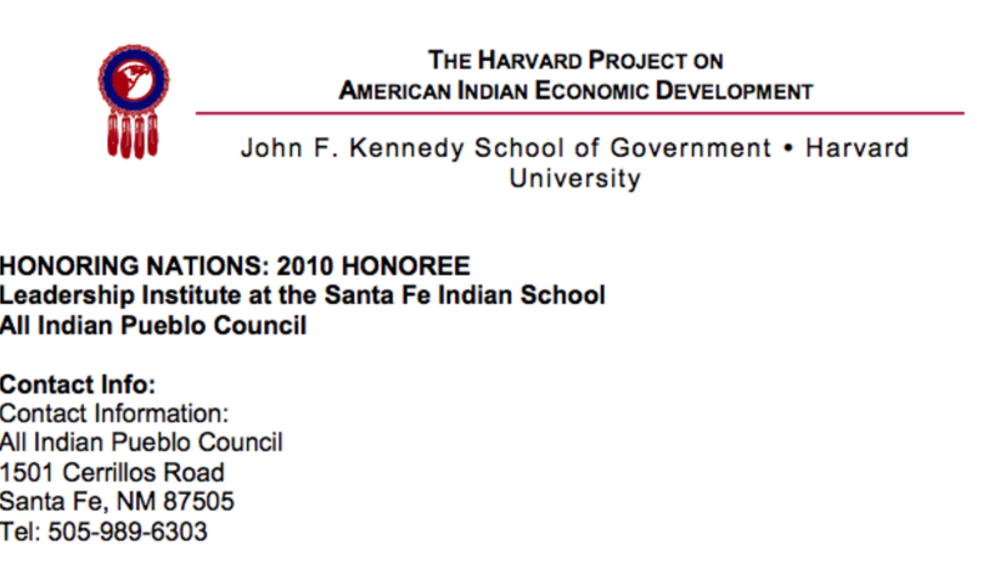
Leadership Institute at the Santa Fe Indian School
Founded in 1997, the Leadership Institute at the Santa Fe Indian School aims to create a dynamic learning environment in which community members not only learn and teach, but are able to actively contribute to the success of their nations. Four themes guide the Institute’s work: leadership,…

Why beggar thy Indian neighbor? The case for tribal primacy in taxation in Indian country
The law governing taxation in Indian country is a mess. The accretion of common law precedents and the general tendency of states to assert primacy over the taxation of non-Indians create absurd outcomes. This article makes the case three ways. The argument based on the law shows that…
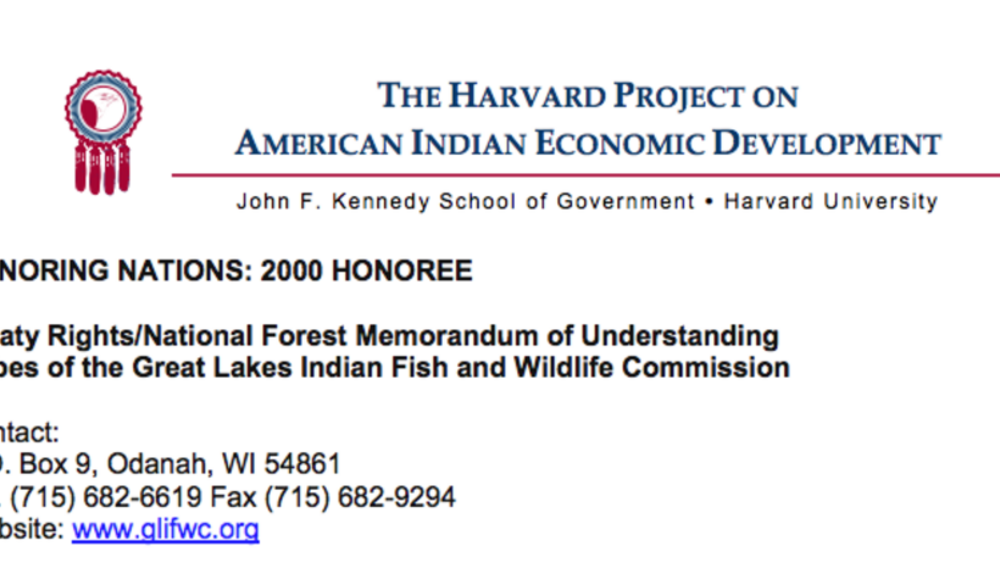
Treaty Rights/National Forest Memorandum of Understanding, Tribes of the Great Lakes Indian Fish and Wildlife Commission
The Great Lakes Indian Fish and Wildlife Commission, a tribally chartered intertribal organization, negotiated a memorandum of understanding (MOU) with the U.S. Forest Service that recognizes and implements treaty guaranteed hunting, fishing and gathering rights under tribal regulations and…
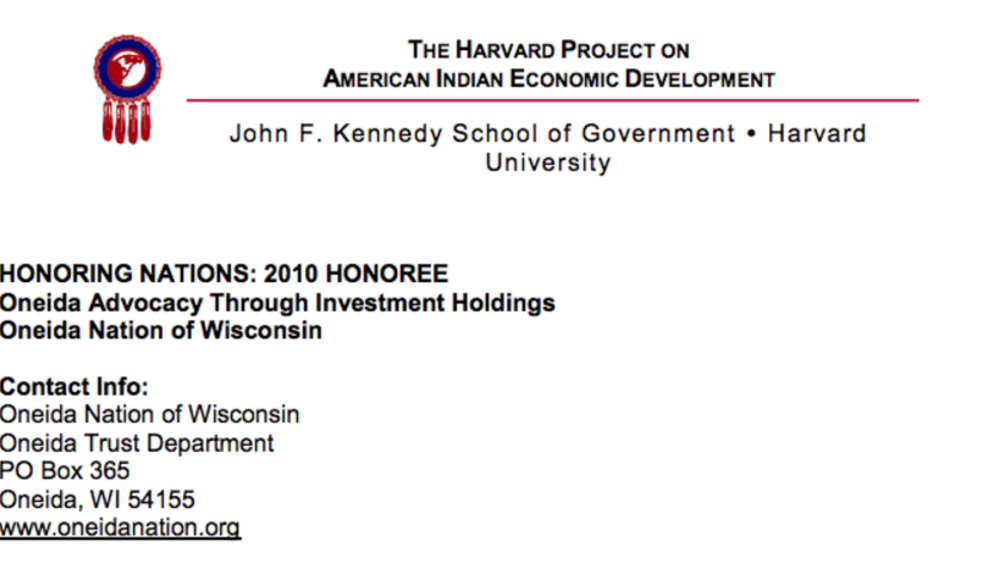
Oneida Advocacy Through Investment Holdings
Thirty years ago, most Native nations in the U.S. had few financial resources available for investment. With the passage of the Indian Self-Determination and Education Assistance Act (Public Law 93-638) in 1975, many tribes began to reclaim the governance of their nations – and with such assertions…
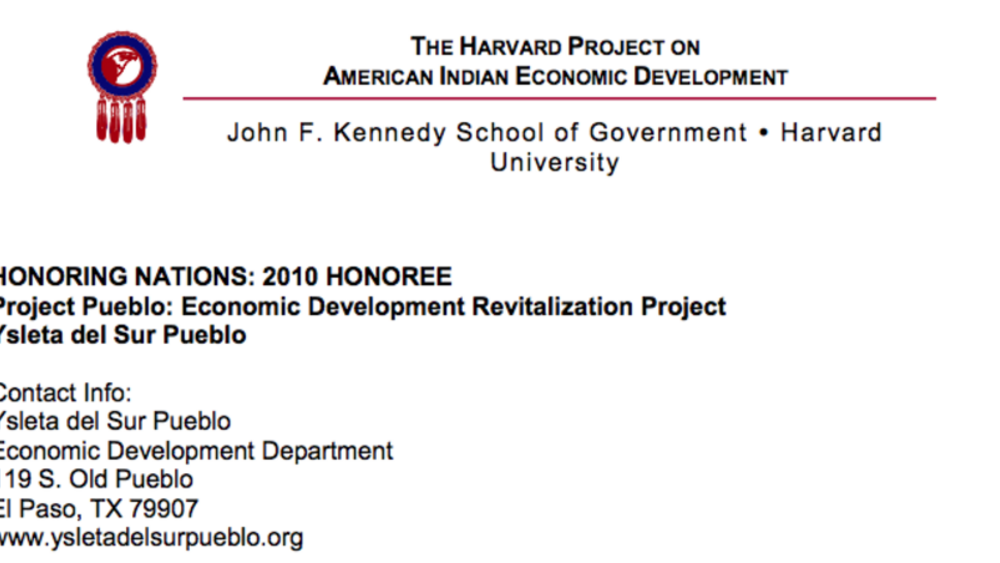
Project Pueblo: Economic Development Revitalization Project
A strong economy is one of the foundations of a healthy community. Native nations use business profits and tax revenues to invest in areas such as health, education, culture, and public safety programs to meet the needs of tribal citizens. At the Ysleta del Sur Pueblo, a sudden economic decline in…
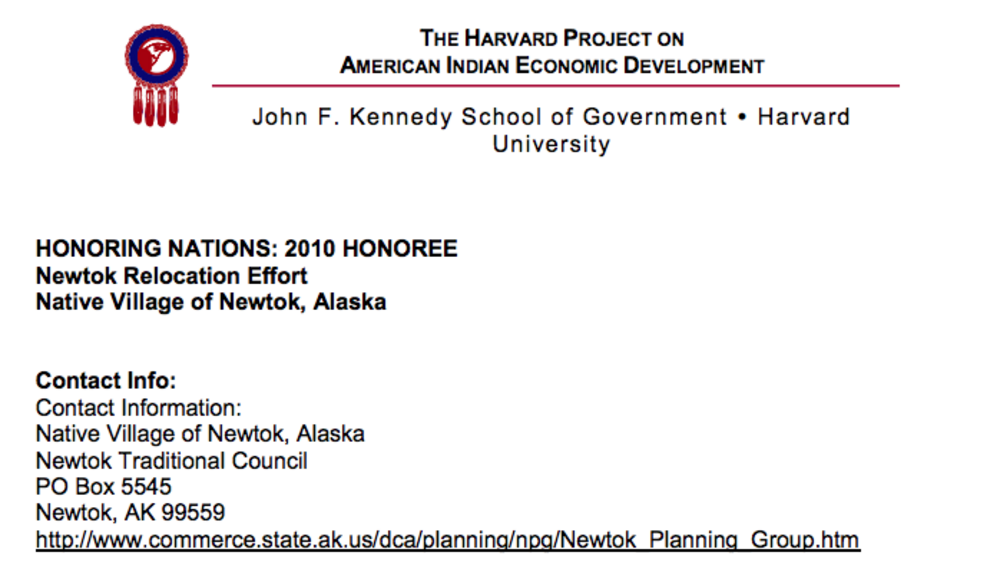
Newtok Relocation Effort
Scientists and politicians spend hours debating the facts of climate change, but in many places damaging changes to the local environment are already a reality. In the past decade, more and more human settlements have been threatened by catastrophic flooding, wildfires, or drought caused by…
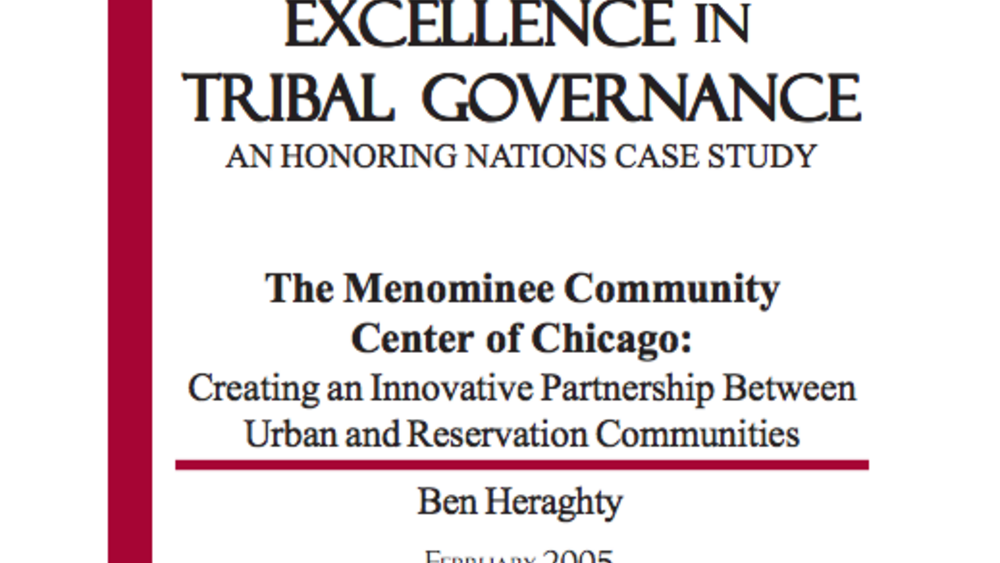
The Menominee Community Center of Chicago: Creating an Innovative Partnership Between Urban and Reservation Communities
Over half of the Menominee Indian Tribe of Wisconsin lives off-reservation. Regrettably, the ties between the Menominee’s reservation and urban populations, like those between the split populations of so many Indian nations, have been tenuous for decades. In 1994, a group…
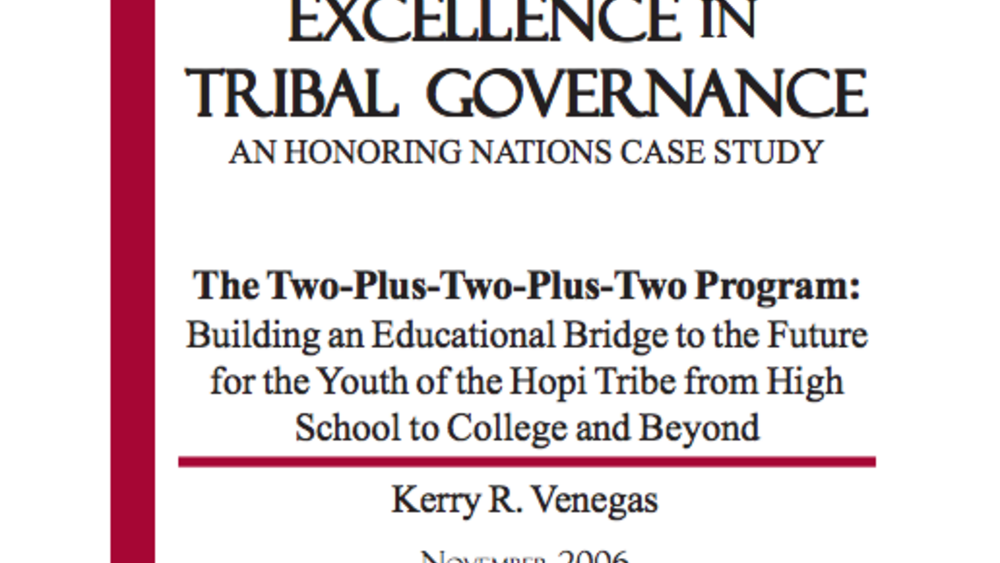
The Two-Plus-Two-Plus-Two Program: Building an Educational Bridge to the Future for the Youth of the Hopi Tribe from High School to College and Beyond
Over the last 30 years, Native nations across North America have been taking control of their educational systems in the belief that American Indian “self-determination and local control [are] means of cultural preservation and growth.” Disturbed by the low achievement scores…
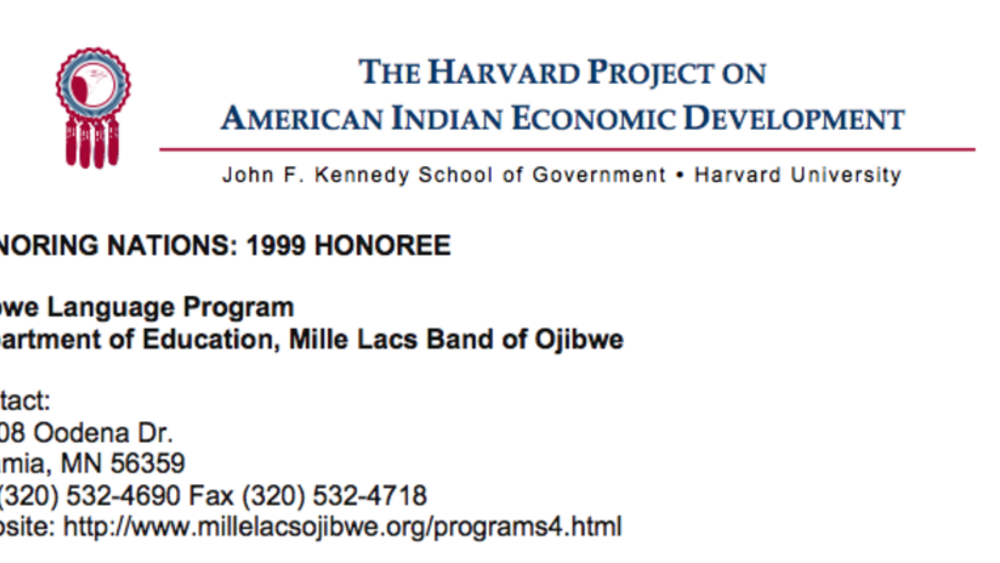
Mille Lacs Ojibwe Language Program
Created in 1995, this tribally funded program serves 350 students (from toddlers to teenagers) and uses elder-youth interaction, song books, and comic books to teach the Ojibwe language. In addition, the Program broadcasts language classes to local public schools in an effort to teach the Ojibwe…
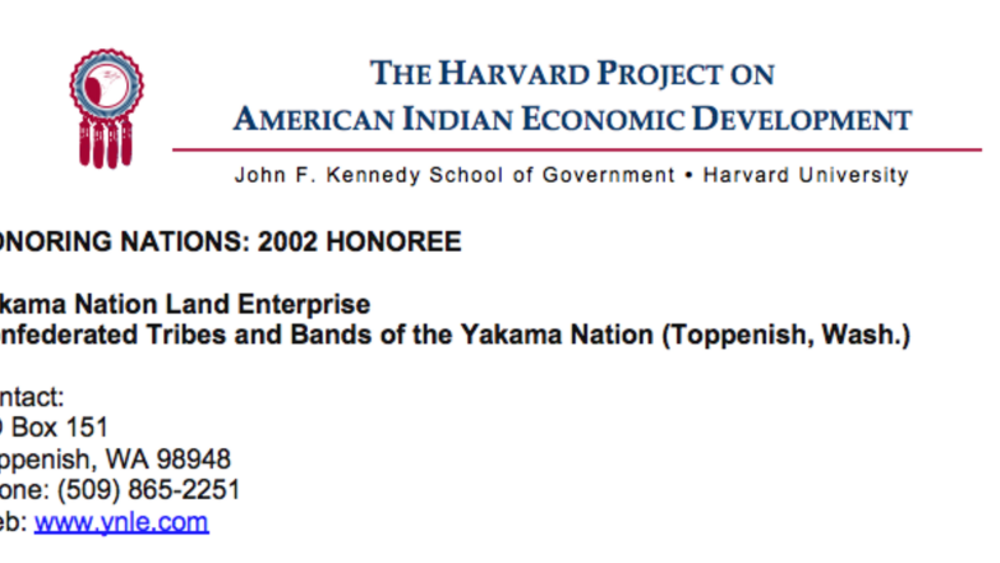
Yakama Nation Land Enterprise
In an effort to consolidate, regulate, and control Indian land holdings, the financially self-sustaining Yakama Nation Land Enterprise has successfully acquired more than 90% of all the fee lands within the Nation’s closed area — lands which were previously highly "checker-boarded." The Enterprise’…
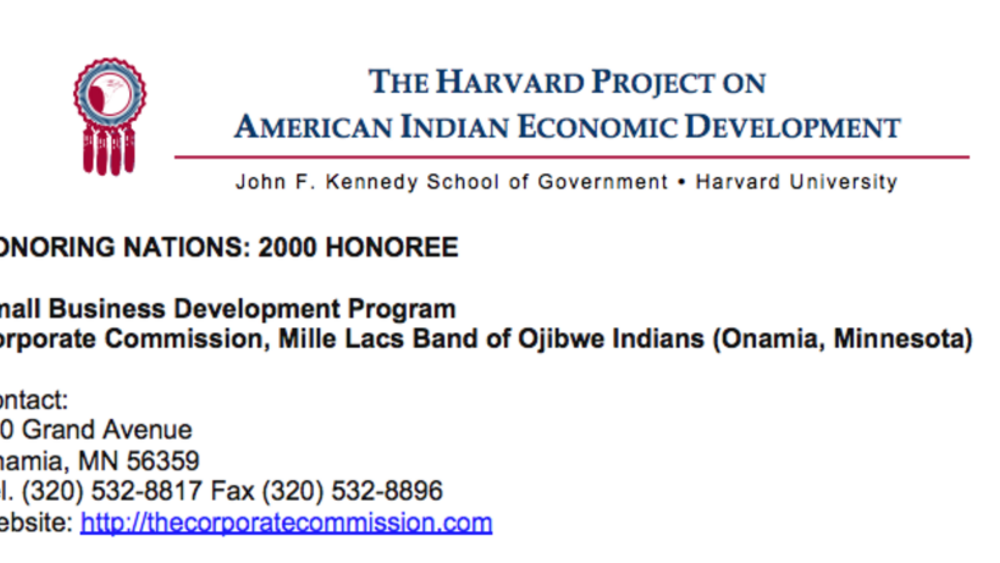
Mille Lacs' Small Business Development Program
The Small Business Development Program assists Band members in developing the private sector economy by providing low-interest loans up to $75,000 to businesses that are at least 60 percent owned and operated by Band members located on or near the Reservation. The Program offers both "micro" loans…
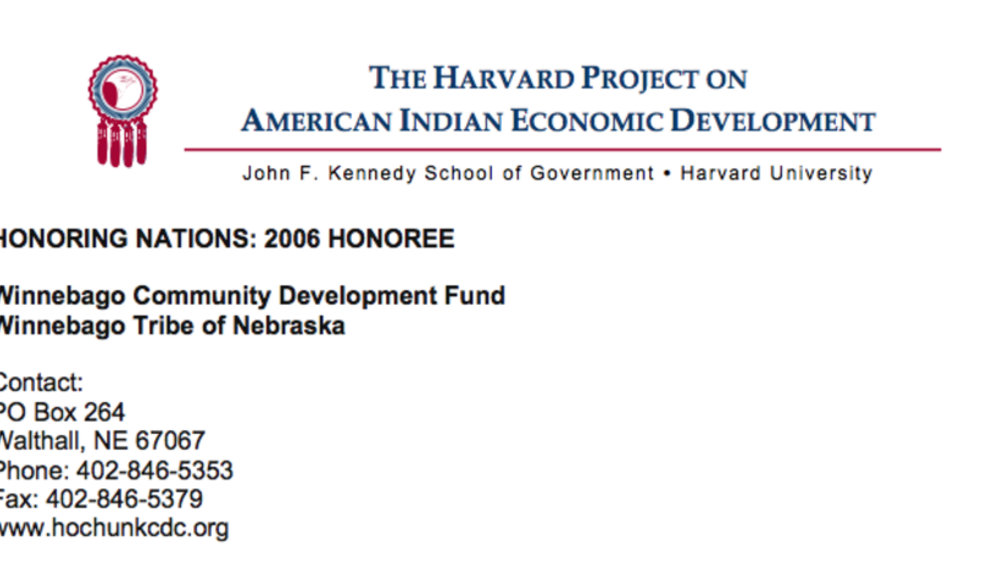
Winnebago Community Development Fund
Establishing a framework for community development based on the goals of the government and its citizens, the Winnebago CDC Fund builds toward long-term development by matching funds for grants, building community projects, supplementing community infrastructure, increasing educational…
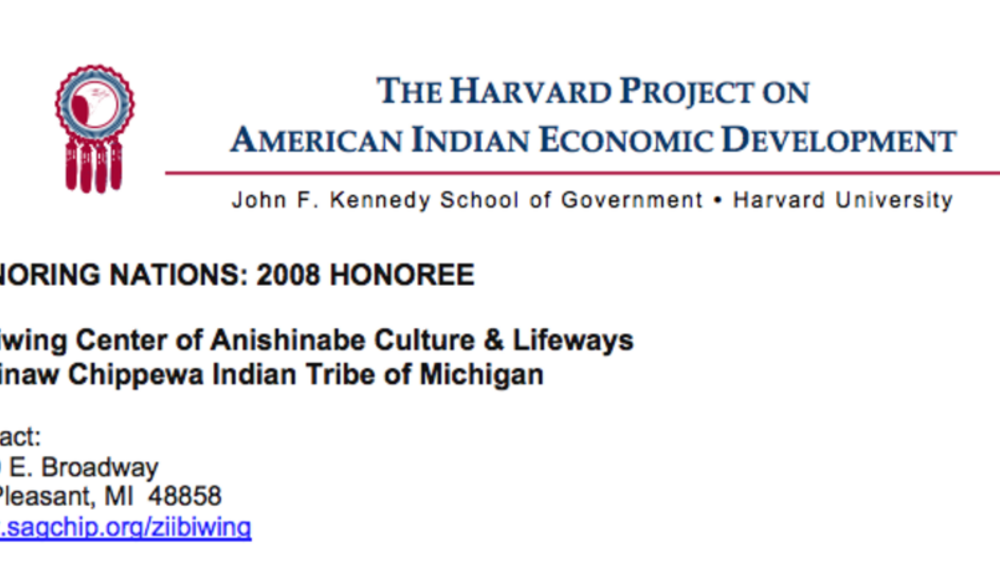
Ziibiwing Center of Anishinabe Culture and Lifeways
The Ziibiwing Center of Anishinabe Culture and Lifeways is the caretaker of cultural heritage for the Saginaw Chippewa. The Center educates the Tribe’s citizens and the general public through its permanent and rotating exhibits, research center, repatriation efforts, art market, workshops, and…
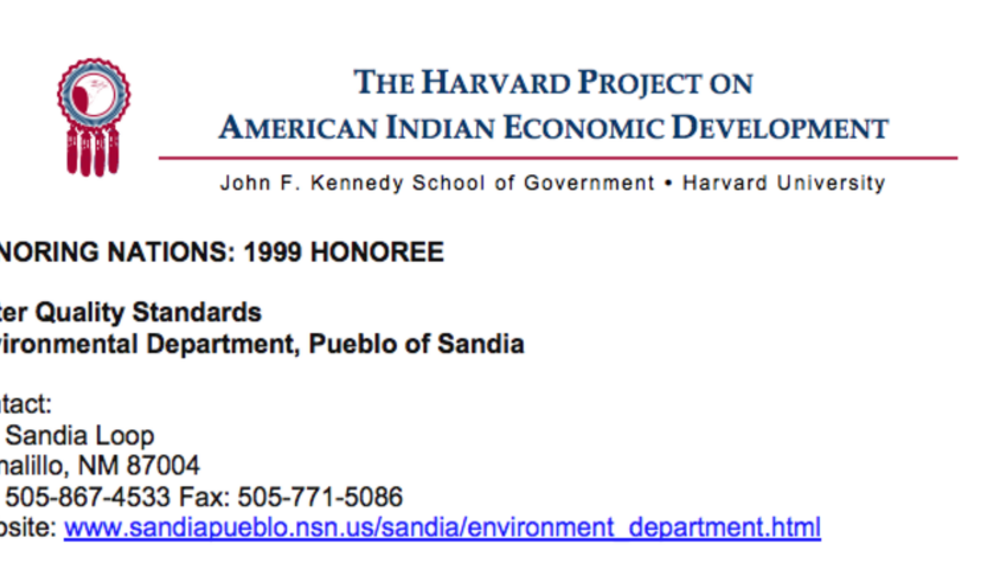
Water Quality Standards (Sandia)
Responding to the severe contamination of the Rio Grande River that threatens human health and ceremonial uses of the water, the Pueblo was awarded "treatment as state" status in 1990. Subsequently, the Pueblo developed and implemented US EPA approved water quality standards that give it control…
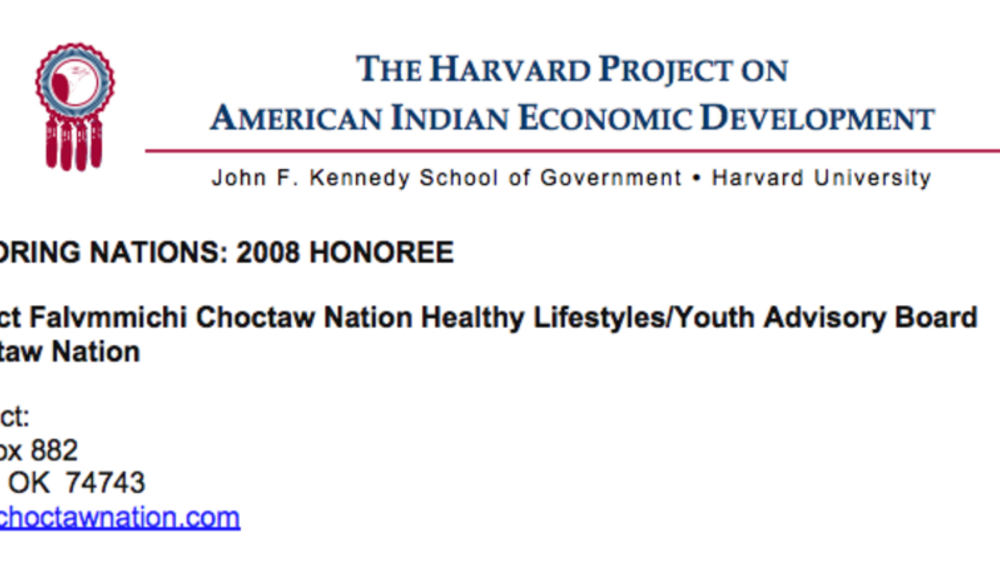
Project Falvmmichi (Choctaw Nation of Oklahoma)
"It is not cool to hit or be hit" is the straightforward motto of Project Falvmmichi, a school-based program of the Choctaw Nation designed to tackle the problem of domestic violence. The program teaches elementary school students positive ways to deal with anger and resolve conflicts. Today, more…
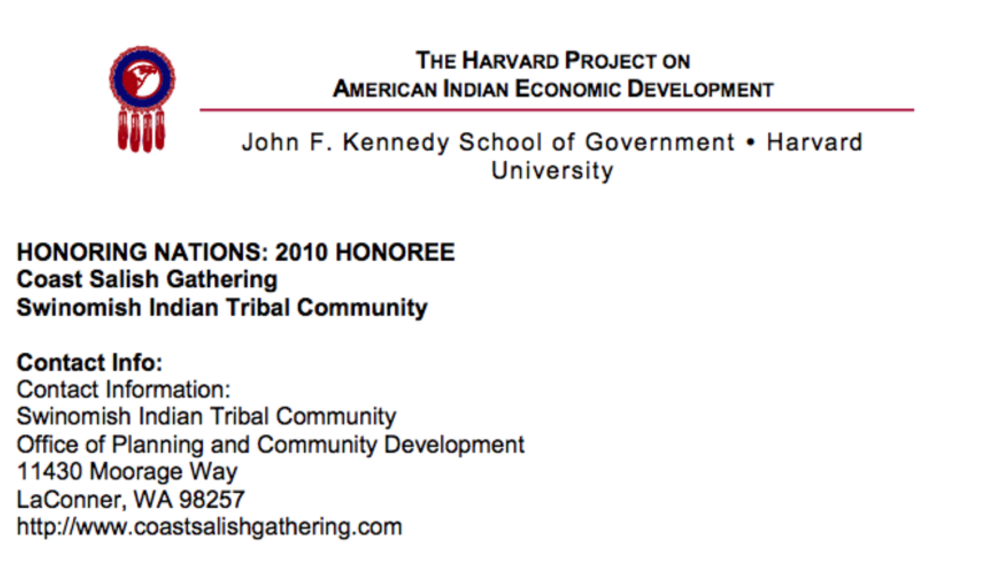
Coast Salish Gathering
Ecosystems in many parts of North America are under severe stress. Pollution, the overuse of natural resources, and habitat destruction threaten local flora and fauna. Conservation attempts often fall short because they target one species of site within an ecosystem. The Coast Salish Gathering…
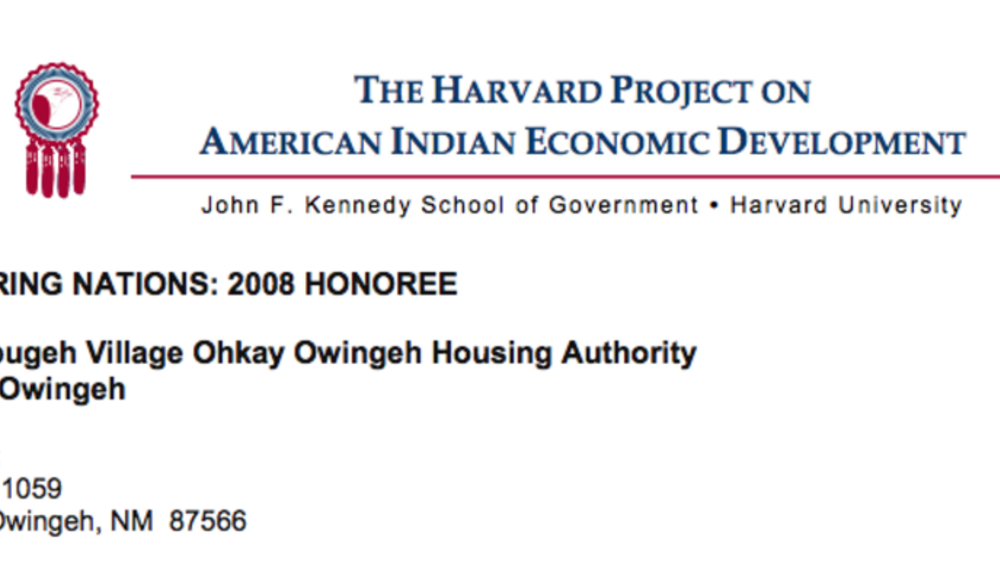
Tsigo bugeh Village (Ohkay Owingeh Pueblo)
Restoring communal living through Pueblo-style housing, the Tsigo bugeh Village offers "traditional living with a modern touch" for Ohkay Owingeh citizens. Designed to honor a sense of community and place, Tsigo bugeh addresses Ohkay Owingeh’s urgent housing demands with 40 units for single and…
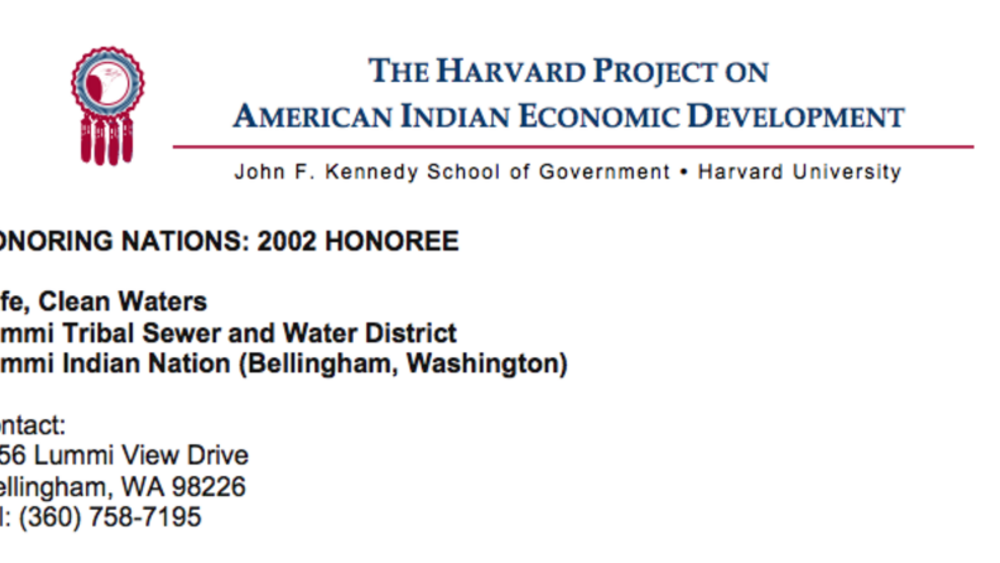
Lummi: Safe, Clean Waters
Governed by a five-member, independently elected board that includes two seats that are open to non-tribal fee land owners, the Lummi Tribal Sewer and Water District provides water, sanitary and sewer infrastructure, and service to 5,000 Indian and non-Indian residents living within the external…
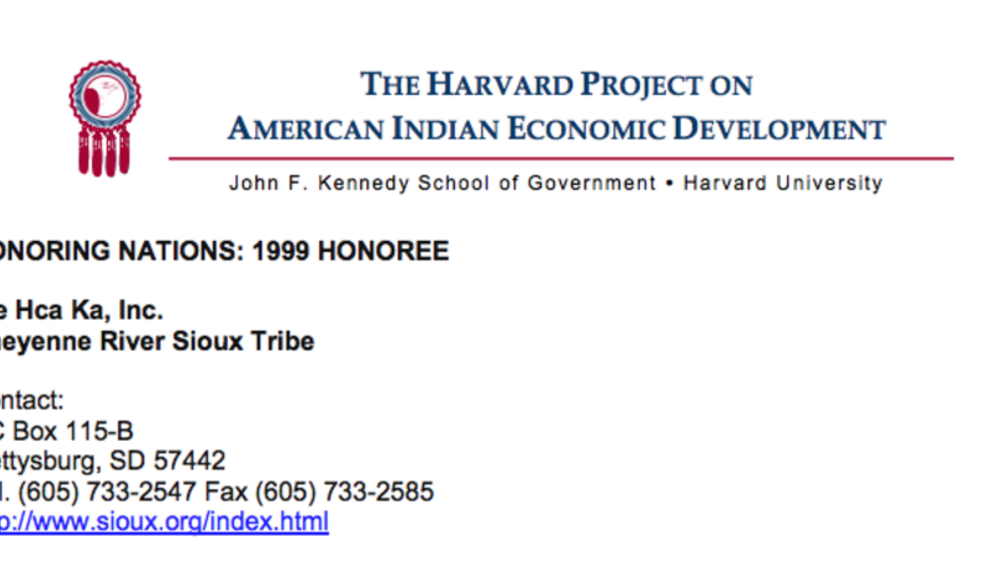
Pte Hca Ka, Inc. (Cheyenne River Sioux Tribe)
This tribally chartered corporation developed a culturally compatible management system for reestablishing buffalo as a focal point for socio-economic development, community cohesion, and self-determination. Pte Hca Ka, Inc. operates a mobile meat processing facility, and is currently seeking…
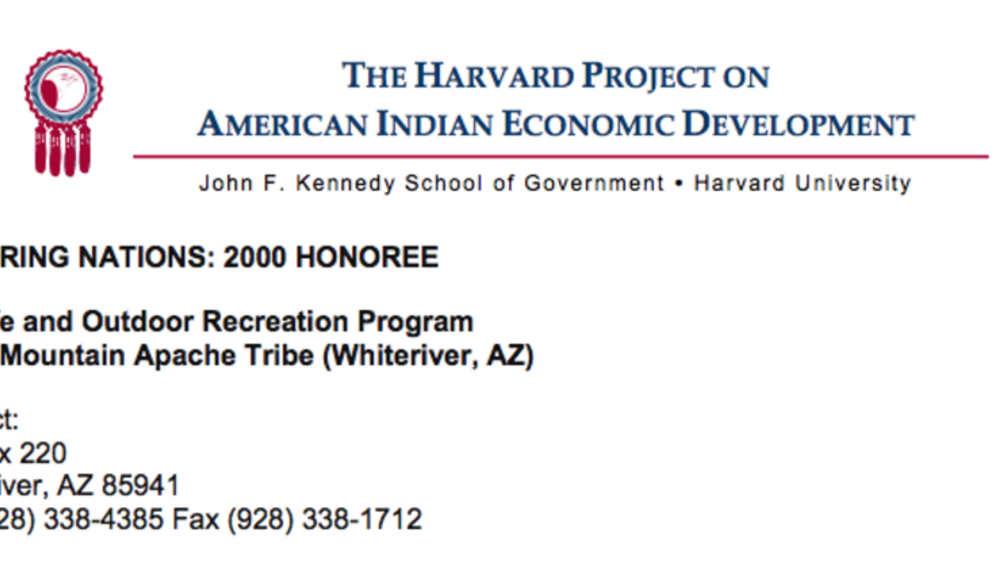
White Mountain Apache Wildlife and Recreation Program
The White Mountain Apache Wildlife and Recreation Program fulfills the dual role of performing all wildlife conservation and management and serving as a self-sustaining business enterprise based on the Tribe’s recreation/tourism industry. The program’s effective wildlife management techniques have…
Pagination
- First page
- …
- 1
- 2
- 3
- …
- Last page
